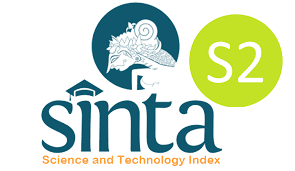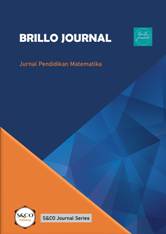Effect of Smartphone-Assisted Jigsaw Cooperative Learning on Students’ Mathematics Self-Efficacy
DOI:
https://doi.org/10.56773/bj.v2i2.32Keywords:
Gender, Mathematics self-efficacy, Smartphone-assisted Jigsaw cooperative learningAbstract
Smartphones have become handy tools in the hands of 21st-century teenagers owing to their necessity for communication and socialization. These devices could therefore possess underlying benefits for mathematics education. This quasi-experimental study probed the consequence of smartphone-assisted Jigsaw cooperative learning on senior secondary school students’ mathematics self-efficacy with recourse to how gender and smartphone efficacy could moderate this effect. The study involved five research questions and hypotheses. Two schools from the Educational District IV, Lagos State were selected by purposive sampling technique from which five hundred and thirty four (534) students drawn from intact classes were assigned into experimental and control groups. Smartphone Assisted Learning Package (SALP) served as the intervention while a valid and reliable Mathematics Self-Efficacy Questionnaire (r=0.90) was employed for data collection. Statistical tools deployed for descriptive and inferential analysis include mean, standard deviation and Analysis of covariance (ANCOVA). Outcome of data analysis portrayed a momentous effect of treatment on students’ mathematics self-efficacy. Smartphone efficacy and gender were found to possess substantial influence on participants’ mathematics self-efficacy. These findings led to the recommendation that teachers should expose mathematics students to smartphone-assisted Jigsaw cooperative learning strategy to promote active learning and improve students’ mathematics self-efficacy.
References
Arifin, S., Wahyudin, W., Herman, T. (2021). The effects of students’ mathematics self-efficacy on mathematical understanding performance. İlköğretim Online, 20(1), 617-627. https://doi.org/10.17051/ilkonline.2021.01.52
Bandura, A. (1977). Self-Efficacy: Toward a unifying theory of behavioural change. Psychological Review, 84, 191–215.
Bonne, L., & Lawes, E. (2016). Assessing students’ maths self-efficacy and achievement. Set: Research Information for Teachers, (2), 60–64. https://doi.org/10.18296/set.0048
Butler-Bowdon, T. (2017). 30 Psychology Classes: Your shortcut to the most important ideas on the mind, personality and human nature, 2nd Edition. Nicholas Brealey Publishing
Cakiroglu, E., & Isiksal, M. (2009). Pre-service elementary teachers’ attitude and self-efficacy beliefs towards mathematics. Education and Science, 34(151), 132-139.
Celik, V., & Yesiyurt, E. (2013). Attitudes to Technology, Perceived Computer Self-Efficacy and Computer Anxiety as Predictors of Computer Supported Education. Computers & Education, 60(1), 148-158 doi.10.1016/j.compedu.2012.06.008
Dada, F. H. (2021). Effectiveness of 4-stage proficiency approach on the mathematical proficiecncy of public senior secondary school students in Lagos State.Unpublished doctoral thesis, School of Postgraduate Studies the University of Lagos, Nigeria.
Dada, F. H., & Nwoke, N. I. (2023). Utilizing senior secondary school students’ laptops and phone profeciencies for achieving advancement through STEAM Education: A case of Mathematics. Paper Presented at the 11th Biennial Conference of the School of Science Education, Federal College of Education (Technical), Akoka, Lagos held from 8th to 11th May, 2023.
Each, N., & Suppasetseree, S. (2021). The effects of mobile-blended cooperative learning on EFL students’ listening comprehension in Cambodian context. LEARN Journal: Language Education and Acquisition Research Network, 14(2), 143 – 170.
Evans, J. A. (2015). Gender, self-efficacy & mathematics achievement: an analysis of fourth grade & eight grade TIMSS data from the United States. Educational Studies Dissertations, 63,1-94. https://digitalcommons.lesley.edu/education-dissertations/63
Fakomogbon, M. A., & Bolaji, H. A. (2017). Effects of collaborative learning styles on performance of students in a ubiquitous collaborative mobile learning environment.Contemporary Educational Technology, 8(3), 268 -279.
Getachew, K., & Birhane, A. (2016). Improving students’ self-efficacy & academic performance in applied mathematics through innovative classroom based strategy at Jimma University, Ethiopia. Tuning Journal for Higher Education, 4(1), 119-143. http://dx.doi.org/10.18543.tjhe-4(1)-2016pp119-143
Golshah, A., Dehdar, F., Imani, M. M., & Nikkerdar, N. (2020). Efficacy of smartphone-based mobile learning versus lecture based learning for instruction of cephalometric landmark identification. BMCMedicalEducation 20, 287.https://doi.org/10.1186/s12909-020-02201-6
Greensfeld, H., & Deutsch, Z. (2022). Mathematical challenges and the positive emotions they engender. Mathematics Education Research Journal, 34(1), 15-36. https://doi.org/10.1007/s13394-020-0030-1
Huang, C. (2013). Gender differences in academic self-efficacy: A meta-analysis. European Journal of Psychology of Education, 28(1), 1-35. http://doi.org/10.1007/s10212-011-0097.y
Komarraju, M., & Nadler, D. (2013). Self-efficacy and academic achievement : Why do implicit beliefs, goals, and effort regulation matter ? Learning and Individual Differences, 25, 67–72. https://doi.org/10.1016/j.lindif.2013.01.005
Kenny, R. F., Van Neste-Kenny, J. M. C., Burton, P., & Park, C. L. (2011). Mobile self-efficacy in Canadian nursing program.Alhabasca University Library Institutional Repository
Laranang, J. A. I., & Bondoc, J. M. F. (2020). Attitudes and self-efficacy of students toward mathematics. International Journal of English Literature and Social Sciences, 5(5), 1392-1423.
Mahat, J., Ayub, A. F. M., & Luan, S. (2012). An assessment of students’ mobile self-efficacy, readiness and personal innovativeness towards mobile learning in higher education in Malaysia. Procedia-Social and Behavioral Sciences, 64, 284-290. https://doi.org/10.1016/j.sbspro.2012.11.033
Mari, J. S., & Gumel, S. A. (2015). Effects of Jigsaw model of cooperative learning on self-efficacy and achievement in chemistry among concrete and formal researchers in colleges of education in Nigeria. International Journal of Information and Educational Technology, 5(3), 196-199.
Mozahem, N. A., Boulad, F. M., & Ghanem, C. M. (2020). Secondary school students and self-efficacy in mathematics: gender and age differences. International Journal of School and Educational Psychology. 9(4), 1-11. https://doi.org/10.1080/21683603.2020.1763877
Negara, H. R. P., Nurlaelah, E., Wahyudin, W., Herman, T., & Tamur, M. (2021). Mathematics self-efficacy and mathematics performance in online learning. Journal of Physics: Conference Series, 1882(1), 1-5. https://doi.org/10.1088/1742-6596/1882/1/012050
Norbu, P., & Dukpa, P. (2021). Investigating the Level of the Tenth-grade Students’ Self-Efficacy in Mathematics and its Impact on their Performance: A Study in Pemagatshel District. Asian Research Journal of Mathematics 17(2), 34-46. https://doi.org/10.9734/arjom/2021/v17i230272
Obi, S., Obiakor, F., & Graves, J. (2016). Technology plus diversity is equal to innovation: Making education work. Journal of Education Research, 10(1), 1-10. Retrieved From https://www.novapublishers.Com
Odiri, O. (2020). Relationship between students’ self-efficacy and their achievement in senior secondary school mathematics, Delta Central Senatorial District, Nigeria. International Journal of Education and Research, 8(5), 33 – 42.
Plough, B. (2017). Recognizing and understanding effectiveness blended learning in secondary classrooms. Leadership, 28 -31
Recber, S., Isiksal, M., & Koç, Y. (2018). Investigating self-efficacy, anxiety, attitudes and mathematics achievement regarding gender and school type. Annals of Psychology/Annals of Psychology , 34 (1), 41-51. https://doi.org/10.6018/analesps.34.1.229571
Rodríguez, S., Regueiro, B., Piñeiro, I., Valle, A., Sánchez, B., Vieites, T., & Rodríguez-Llorente, C. (2020). Success in mathematics and academic wellbeing in primary-school students. Sustainability, 12(9), 3796. https://doi.org/10.3390/su12093796
Roick, J., & Ringeisen, T. (2017). Self-efficacy, test anxiety, and academic success: A longitudinal validation. International Journal of Educational Research, 83, 84–93. https://doi.org/10.1016/j.ijer.2016.12.006
Santi, E. A., Gorghiu, G., & Pribeanu, C. (2020). Teacher’s perceived self-efficacy for mobile teaching and learning. RevitaRomaneascaPentruEducatieMultidimensionala, 12(1sup2), 157-166. https://doi.org/10.18662/rrem/12.1sup1/259
Sathyprakasha, C. V., Nandin, N., & Kalyani, K. (2014). Research on cooperative learning: A meta-analysis. International Journal of Informative and Futuristic Research, 1(10), 139-150.
Shaine, M. H. (2015). The Effect of Self-Regulated Learning Strategies and Self-Efficacy on Academic Achievement of Primary School Students. Psychology and Behavioral Sciences, 4(3), 107-115. https://doi.org/10.11648/j.pbs.20150403.14
Skaalvik, E. M., Federici, R. A., & Klassen, R. M. (2015). Mathematics achievement and self-efficacy: Relations with motivation for mathematics. International Journal of Educational Research, 72, 129–136. https://doi.org/10.1016/j.ijer.2015.06.008
So, H. J., Choi, H., Lim, W. Y., & Xiong, Y. (2012). Little experience with ICT: Are they really the Net Generation student-teachers?. Computers & Education, 59(4), 1234-1245. https://doi.org/10.1016/j.compedu.2012.05.008
Tizazu, S. A., & Ambaye, D. W. (2017). Assessment on Students ‘Academic Self-Efficacy, Self-Concept, Goal Orientation and Academic Achievement: The Case of Debre Markos Higher Education Preparatory School, Ethiopia. European Journal of Education Studies, 3(8), 778-792.
Toland, M. D., & Usher, E. L. (2016). Assessing mathematics self-efficacy: How many categories do we really need?. The Journal of Early Adolescence, 36(7), 932-960. https://doi.org/10.1177/0272431615588952
Woke, B. W., Agu, N. N., & Joy, O. E. (2021). Pupils’ Mathematics Self-Efficacy as Correlate of Their Academic Achievement in Mathematics in Public Primary Schools in Rivers State. Journal of Global Research in Education and Social Sciences, 15(3), 1-7.
Yang, S. H. (2012). Exploring college students' attitudes and self-efficacy of mobile learning. Turkish Online Journal of Educational Technology-TOJET, 11(4), 148-154.
Downloads
Published
How to Cite
Issue
Section
License
Copyright (c) 2023 Felicia Omotola Johnson, Ruth Folake Lawal, Favour Hapuruchi Dada

This work is licensed under a Creative Commons Attribution 4.0 International License.
The authors agree that this article remains permanently open access under the terms of the Creative Commons Attribution 4.0 International License






